THAI NGUYEN Thanks to its high content of N, P, K as well as some minerals and protein, duckweed can provide an important source of nutrition for livestock.
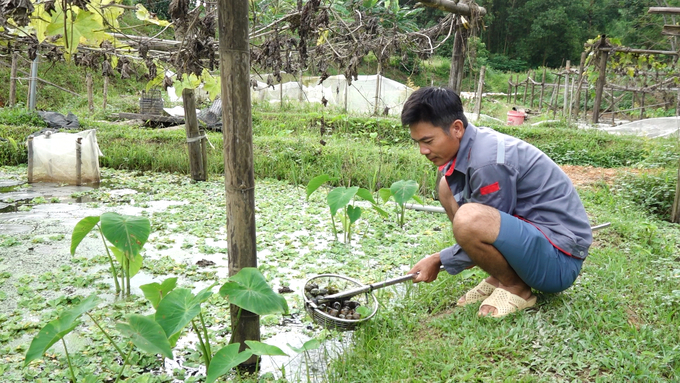
Using biological products to treat ponds helps neutralize pH. Photo: Quang Linh.
Come to duckweed like fate
Due to concerns that snail dishes contain growth stimulants and antibiotics, Ms. Nguyen Thi Binh, Director of Thien Phuc Agricultural and Medicinal Cooperative in Minh Lap Commune, Dong Hy District (Thai Nguyen) and her members have researched and developed a process for raising snails using duckweed and organic by-products.
At the beginning, Ms. Binh and her colleagues were very concerned about the direction of large-scale development, how to create quality snail products that are both safe for human health and environmentally friendly. Through reading newspapers and scientific documents, Ms. Binh learned about duckweed - a plant with many remarkable uses.
Duckweed is a small monocotyledonous plant with the fastest growth rate among flowering plants. Along with the high biomass growth rate, the biomass from duckweed contains high protein content and is an important food source for livestock. In particular, duckweed is grown in ponds and lakes, becoming a component in the garden - pond - barn model without affecting the area of land for traditional food crops.
In addition, duckweed is a favorite aquatic plant used to clean wastewater sources. Because of its different characteristics compared to other plants, duckweed is increasingly receiving research attention from scientists in many countries around the world .
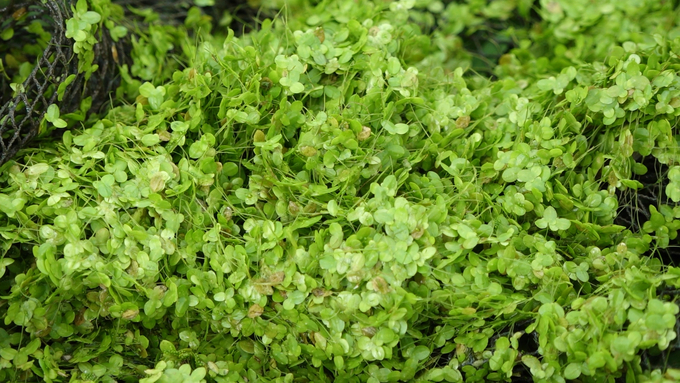
Duckweed grows quickly and is safe food for livestock. Photo: Quang Linh.
“Coming to duckweed is fate and I am lucky to have met duckweed,” Ms. Binh shared. Because of its high content of N, P, K as well as some minerals and protein, duckweed is cultivated to provide an important source of nutrition in livestock diets.
Duckweed is raised by Thien Phuc Agricultural and Medicinal Materials Cooperative (Thien Phuc Cooperative) in a separate pond, then transferred to the snail farming area to control quality and disease risk.
Clean snails, fragrant and crispy meat thanks to eating duckweed
Regarding the process of raising snails with duckweed, Mr. Nong Trong Son, a technician of Thien Phuc Cooperative, said that before releasing snails, the water must be drained, impurities and bacteria removed, and natural enemies such as fish, crabs, golden apple snails, etc. must not enter the pond. In addition, the water source must be treated before being put into the pond. In addition, people grow squash on trellises to create shade for the pond and provide additional food for the snails.
The pond is only stocked with snails, the ideal water level is about 0.5m, the density is approximately 150 snails/m2. The selected snails must be healthy, of good quality, the shell must not be chipped or crushed and the top of the shell must have a bright color. The size of the snails must be greater than or equal to 0.5cm.
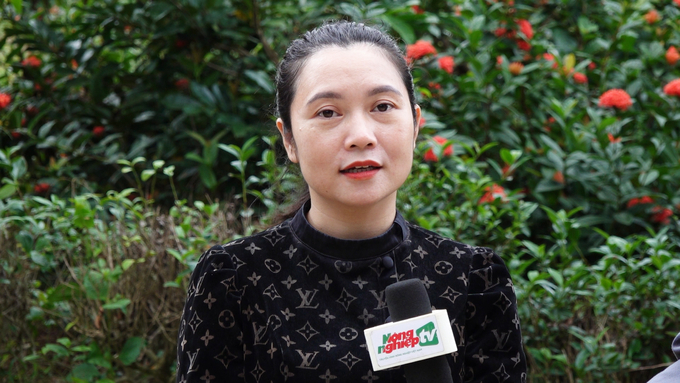
Ms. Nguyen Thi Binh, Director of Thien Phuc Agricultural and Medicinal Cooperative. Photo: Quang Linh.
“We use biological products to treat snail droppings. This helps reduce the amount of toxic gas released into the pond, decomposes organic matter, excess food, and scum at the bottom of the pond, etc., reduces water pollution, and at the same time adds intestinal microorganisms to help improve the snail's digestive system,” Ms. Binh shared.
Raising snails with duckweed will take more time than the traditional way when having to raise and scoop duckweed regularly to feed the snails. However, this method is highly effective when the snails are large, uniform in size, beautiful in appearance, the snail meat is clean, has no bad smell, is fragrant, crispy and has a richer flavor.
Currently, Thien Phuc Cooperative is selling commercial snails at a price of about 100,000 VND/kg. The main consumer market is restaurants in Thai Nguyen province and neighboring localities.
“The members of the Cooperative and I are all children of Dong Hy district. We were born, grew up and have been attached to this land all our lives. Therefore, I hope that organic agriculture is not only a livelihood for the people, but also a driving force to make Dong Hy a livable countryside,” the female director of the Cooperative hopes.
Source: https://nongsanviet.nongnghiep.vn/ba-chu-me-nong-nghiep-huu-co-nuoi-beo-tam-cho-oc-d402369.html


![[Photo] Urgently help people soon have a place to live and stabilize their lives](/_next/image?url=https%3A%2F%2Fvphoto.vietnam.vn%2Fthumb%2F1200x675%2Fvietnam%2Fresource%2FIMAGE%2F2025%2F12%2F09%2F1765248230297_c-jpg.webp&w=3840&q=75)





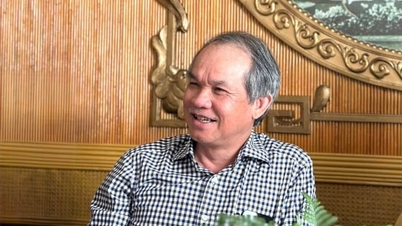


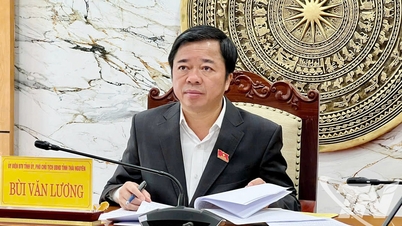


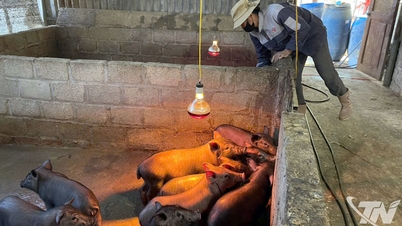
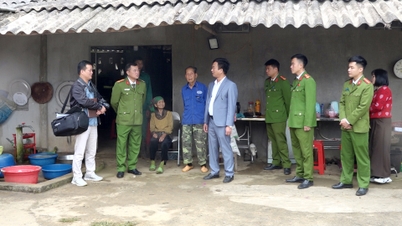



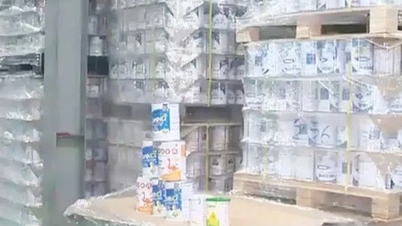









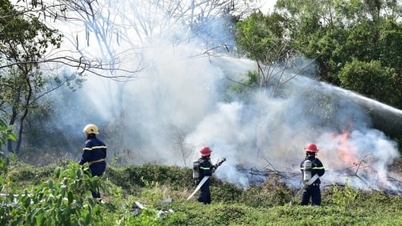
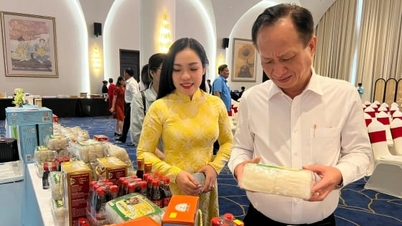
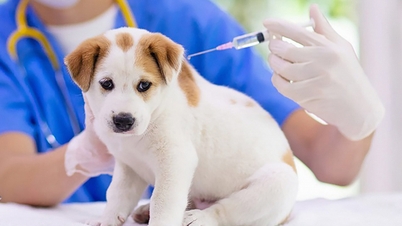
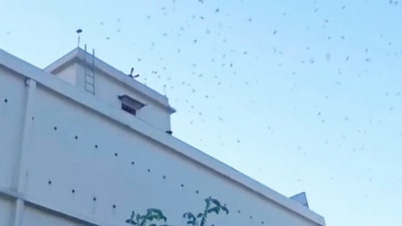
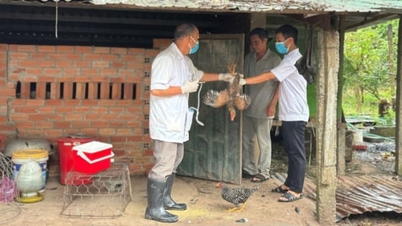




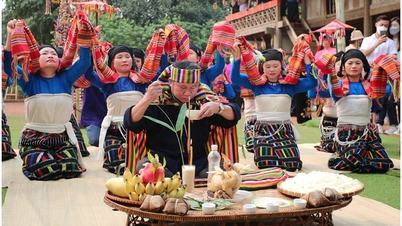


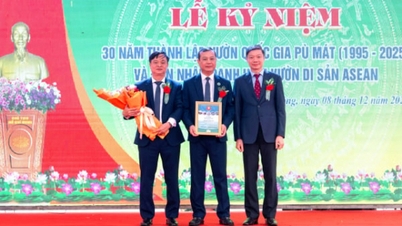

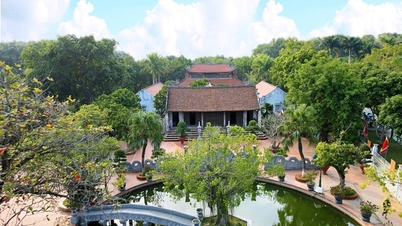


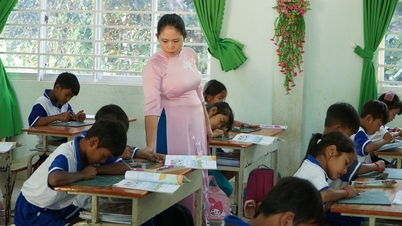

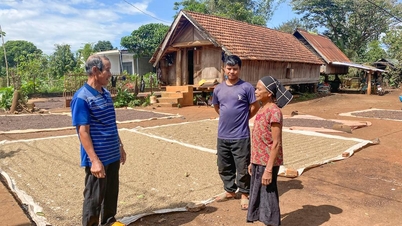



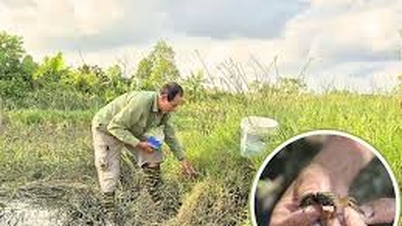


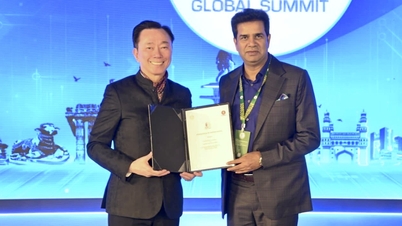
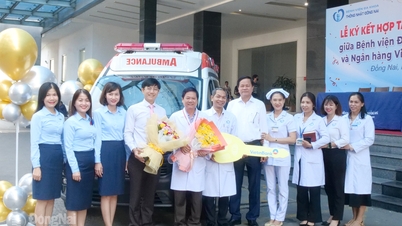

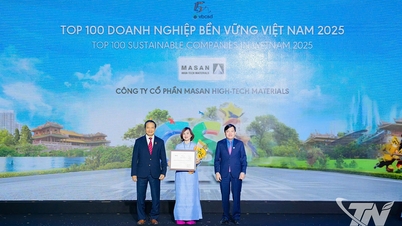

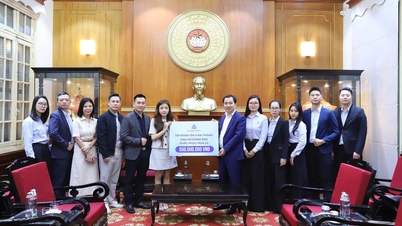













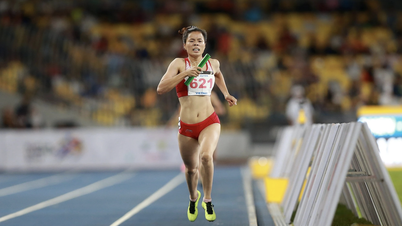

![[Photo] General Secretary To Lam works with the Standing Committees of the 14th Party Congress Subcommittees](https://vphoto.vietnam.vn/thumb/402x226/vietnam/resource/IMAGE/2025/12/09/1765265023554_image.jpeg)









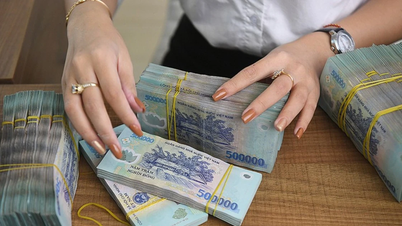



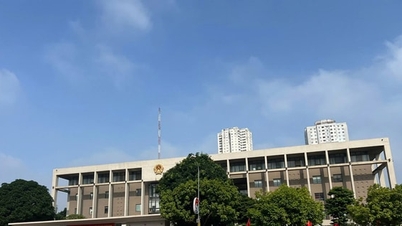















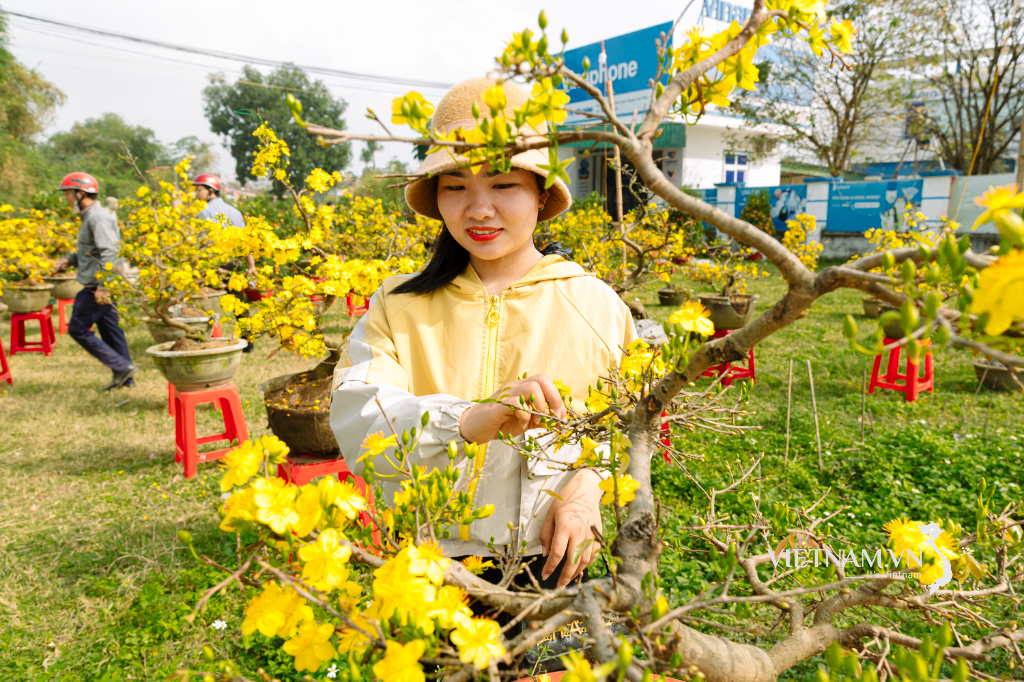




Comment (0)